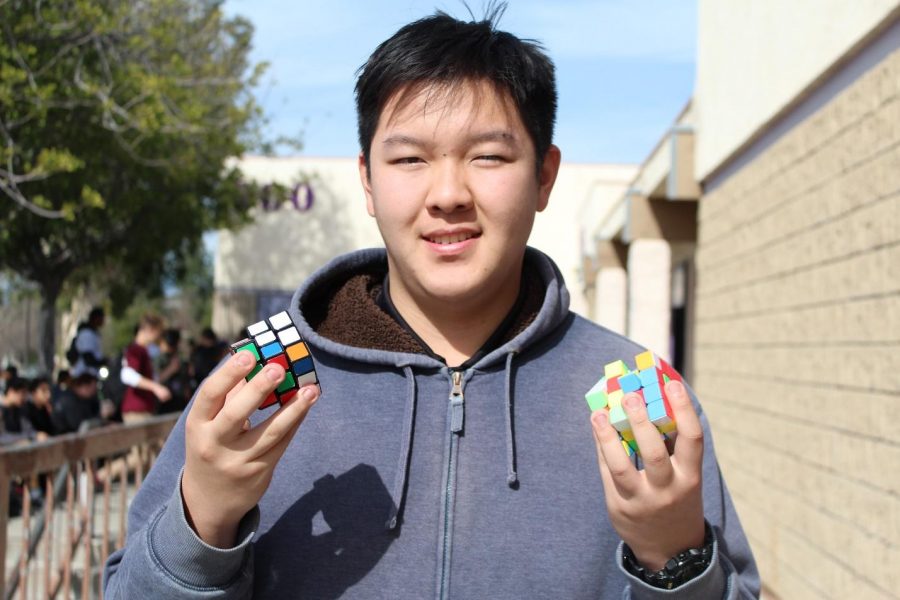Cubing Competitor
February 22, 2017
Even before the timer begins, Diamond Bar High School junior Bill Zhang is running algorithms through his head. The puzzle before him is a mess of bright colors, and as the seconds begin to add up, Zhang’s fingers begin quickly manipulating the many faces of the cube.
Less than half a minute later, Zhang sets his hands down, ending the timer, and places the solved Rubik’s cube in front of him.
Introduced to the challenge by his friends, Zhang first began solving Rubik’s cubes his freshman year and began participating in local competitions a year later.
“I saw my friend doing [a Rubik’s cube], and I thought it looked really cool so I decided to learn try it,” Zhang said. “My other friend asked me to go to a local competition with him, so I went.”
Local competitions allow cubers to pit their speed against others and provide a forum for discussion of different types of cubes. Zhang competes in the 2×2 and 3×3 competitions, the most popular events, though larger sizes are available. As the competition begins, participants are seated in front of a judge, and are handed their scrambled cube.
Judges record solving times on a slip of paper, and cubers are set free to create blurs of color, with their final score being their average time over five trials.
“It feels different than just solving it by yourself. There’s a lot more pressure on you, and since the scrambles are based on computer-generated algorithms, it’s just different,” Zhang said.
There are regional and national competitions, neither of which have prerequisites for attending. In the past, Zhang has attended regional competitions in both Los Angeles and San Dimas. Nationals are held in a different locale each year, and are set to be held in Indiana this July.
Despite having taken a hiatus from competitive cubing due to school, Zhang has started a Rubik’s cube club on campus.
He says he hopes to begin competing again in the summer due to his friendly interactions with other cubers and the sense of community.
“In general, when you go to competition, there are a bunch of kids there, and they all have a bunch of cubes and are really open,” Zhang said. “If you want to try one of their cubes, they let you, and you let them try one of your cubes. I was able to interact with a lot more people due to cubing, and it has helped shape who I am today.”









